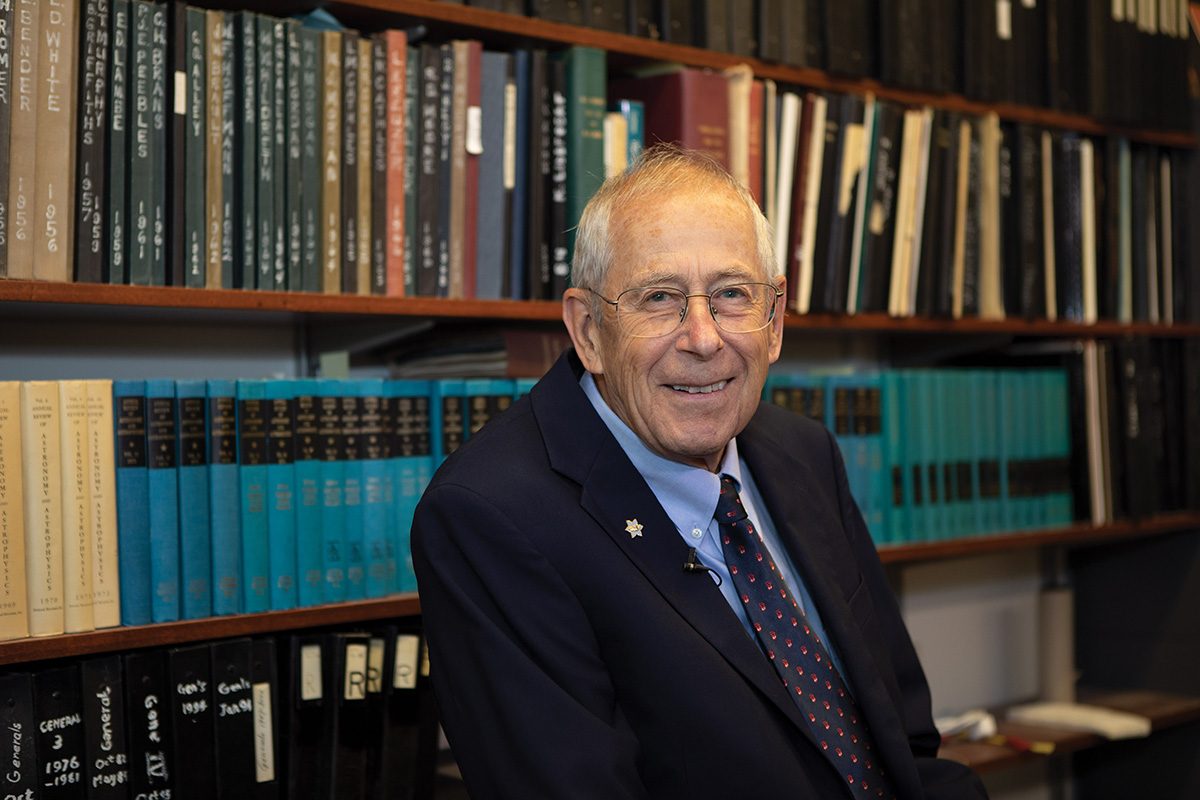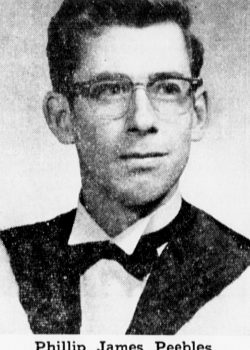
James Peebles. // Image courtesy of Princeton University
UM alumnus wins Nobel Prize in Physics
The Swedish Academy of Sciences announced that a UM graduate, acclaimed cosmologist Dr. James Peebles, has won the 2019 Nobel Prize in Physics.
Dr. Peebles, 84, professor emeritus at Princeton University, was cited for “theoretical discoveries in physical cosmology,” and shares the award with two Swiss astronomers, Michel Mayor, 77, and Didier Queloz, 53, who discovered a planet orbiting a binary star.
Dr. Peebles is recognized as one of the most highly regarded cosmologists, and will receive one half of the 9-million kronor ($1.21 million) cash award.
“On behalf of the entire extended University of Manitoba family of students, staff, faculty and alumni, I want to convey how deeply proud we are of Dr. James Peebles — for winning the Nobel Prize in Physics, and demonstrating for all the world to see, as we have claimed about the University of Manitoba for years, ‘from here, you can go anywhere,’ including across galaxies,” said Dr. David Barnard, president and vice-chancellor of the University of Manitoba.
“We have a proud tradition of nurturing great thinkers and doers here, and today, in celebrating Dr. Peebles’ extraordinary achievement, I am sure we are inspiring new generations of scientists and others striving to understand all aspects of the world in which we live,” said Barnard.
Dr. Peebles was born in St. Boniface in 1935. He graduated as class valedictorian from Glenlawn Collegiate in 1953, then went to the University of Manitoba and studied honours physics, where he received a bachelor of science degree with honours in 1958.
During a news conference at Princeton on Oct. 8, Peebles expressed gratitude to the University of Manitoba.
“I’m deeply indebted to the department of physics and its faculty and fellow students for showing me that I love physics.” He pointed to Ken Standing, UM emeritus physics professor, as a mentor. In 2010, Standing and his colleague Werner Ens won the Manning Innovation Award, dubbed the “Canadian Nobel Prize,” for their advancements in time-of-flight mass spectrometry.
Students, faculty and staff gathered in the Science Students Lounge at UM to celebrate Peebles’ achievement, and speak with him via Skype, where he shared advice with students.
After earning his physics degree in 1958, he left Manitoba for Princeton and earned his doctoral degree from Princeton in 1962. He was made professor of physics there in 1972 and in 1984 was given the title Albert Einstein Professor of Science. In 1989 Dr. Peebles was awarded an honorary degree from the University of Manitoba, and in 2017 he was invested into the Order of Manitoba.
“My heartiest congratulations to Dr. Peebles. We are pleased that he received his founding education at the University of Manitoba, where undergraduate students are exposed to research early in their studies,” said Dr. Digvir Jayas, vice-president (research and international) and Distinguished Professor. “The teaching of our professors is informed by their research, just as that teaching interaction with students contributes to their research.”
Prime Minister Justin Trudeau also congratulated Peebles, as did Manitoba Premier Brian Pallister.
“Budding scientists of all ages can be inspired by Dr. Peebles’ many contributions to our understanding of science, physics and cosmology,” said Pallister.
Dr. Peebles first achieved recognition by predicting, with a colleague, that evidence for the big bang should still be observable, in the form of cosmic microwave background radiation. But Dr. Peebles’ major life work was on the clustering of galaxies in space. He learned how to extract information on clustering from catalogues of galaxy positions and showed how to use this information to test theories of galactic formation.
Peebles is also a prolific donor to UM and its Front and Centre Campaign. Having been the recipient of financial support during his undergrad, Peebles has given back in gratitude over the past three decades to initiatives like the Centennial Scholarship in Physics and the Isbister Undergraduate Scholarships (which he received twice while pursuing his UM degree).
Dr. Peebles’ landmark book, The Large-Scale Structure of the Universe, is practically a bible to astronomers and cosmologists trying to unravel other mysteries of the universe.
In 2015, Dr. Peebles described his physics journey for UM Today.
To view the full news conference on his Nobel Prize in Physics, click on the video below.
Listen in: A Conversation with Dr. James Peebles
 Following his Nobel Prize win, Dr. James Peebles returned to the University of Manitoba for a special live-recorded podcast episode with UM President Michael Benarroch. In this engaging conversation, Dr. Peebles unpacks some of his groundbreaking work on the Big Bang Theory, dark matter, and the evolution of the universe. The episode also features a UM student and aspiring astrophysicist who shares how Dr. Peebles’s legacy has shaped their academic journey.
Following his Nobel Prize win, Dr. James Peebles returned to the University of Manitoba for a special live-recorded podcast episode with UM President Michael Benarroch. In this engaging conversation, Dr. Peebles unpacks some of his groundbreaking work on the Big Bang Theory, dark matter, and the evolution of the universe. The episode also features a UM student and aspiring astrophysicist who shares how Dr. Peebles’s legacy has shaped their academic journey.
Listen to Dr. Peebles in conversation with President Micheal Benarroch here.
Research at the University of Manitoba is partially supported by funding from the Government of Canada Research Support Fund.








It is a moment of great pride for all University of Manitoba Alumni that an Alumni has won the Nobel prize for Physics. I congratulate University of Manitoba on this achievement.
Congratulations to all!
I am so proud of him.
that’s awesome!!
Dear Sir,
Congratulations. You are looking great and doing great.
God bless.